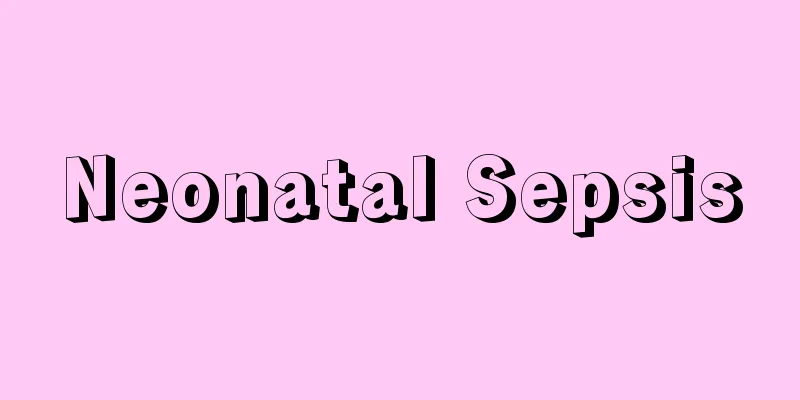What to do if your child has watery stools

|
The symptom of loose watery stools in infants may be caused by the inability of gastrointestinal function to absorb normally, or it may be caused by improper feeding and bacterial infection. Therefore, it is recommended that babies should understand the symptoms and treatment methods of watery stools in infants. When a baby has loose stools, we must first adjust the baby's diet and pay attention to the baby's gastrointestinal conditioning. Why does my baby have watery stools? 1. Physiological loose stools Since the intestinal function of normal newborns is not yet fully developed, there are obvious differences in the stool characteristics of babies with different feeding methods. For example, breast milk is easily absorbed by newborns who are breastfed, so breastfed babies generally have more bowel movements and may experience false diarrhea. The baby may have up to 7-8 bowel movements a day, or even 10-12 times. The stools are usually thin. If the baby is in good spirits, eats well, and has normal weight gain, there is no need to worry. 2. Pathological factors (1) Non-infectious factors Improper feeding: Parents feed their newborn babies milk powder that is too concentrated, inappropriate, sugar is added to the milk powder, the milk is too cold, or starchy foods such as rice paste are added too early, which can easily lead to food accumulation in the baby and cause diarrhea. Allergy to milk powder: 2-7 out of 100 babies are allergic to milk powder protein. Newborn babies with hereditary allergies are more likely to develop allergic symptoms to milk powder protein. (2) Viral or bacterial infection Cold: When babies have a cold, they often have diarrhea symptoms. Therefore, as long as the cold is cured fundamentally, the diarrhea will naturally heal. Viral or bacterial infection: Newborns have poor immune function, especially intestinal immunity. When the intestine is infected, they are unable to weaken and neutralize the virulence of bacteria. It can be divided into intestinal infection and extraintestinal infection. Intestinal infections mainly occur in newborns who are bottle-fed or mixed-fed, because the disease enters the body through the mouth due to unclean feeding utensils. The most serious is neonatal epidemic diarrhea. Extraintestinal infections are mainly caused by the influence of pathogen toxins or the underdeveloped nervous system, which leads to digestive system dysfunction and increased intestinal motility, causing diarrhea. When newborns suffer from pneumonia and sepsis, bacteria can sometimes penetrate the intestinal wall from outside the intestine or in the blood and penetrate into the intestine, causing enteritis. What to do if your baby has diarrhea 1. General treatment: If a baby under 6 months old is breastfed, he or she needs to continue breastfeeding; if not breastfed, you can continue to feed the baby with the milk or dairy products he or she consumes daily. For babies with mild symptoms, the amount of milk sucked should be appropriately reduced. If the baby is over 6 months old or has started eating solid food, give him some rice porridge or other starch mixed food. Families with conditions can add some vegetables, fish or minced meat, and add some vegetable oil to each feeding. Specifically, you can give some fresh fruit juice or mashed bananas to supplement potassium; you can also feed freshly prepared foods, of course, these foods must be well cooked, ground or mashed. Parents should encourage their babies to eat and feed them at least 6 times a day. In addition, after the baby's diarrhea stops, continue to feed the baby the above foods, and add meals at least once a day within two weeks after the diarrhea stops until the baby's weight returns to normal. However, if the baby has severe diarrhea, he or she should fast for 8-24 hours and receive intravenous fluids. 2. Fluid therapy: 1. Oral method: suitable for babies with mild dehydration or mild vomiting. The amount of fluid replacement is calculated as 100 ml/day per kg of body weight and taken in several doses. 2. Intravenous rehydration: used for children with moderate to severe dehydration. 3. Drug treatment: If the child's diarrhea does not improve after 3 days or the following symptoms occur, you should seek medical attention in time: (1) Frequent watery bowel movements. (2) Frequent vomiting. (3) Obvious thirst. (4) Unable to eat normally. (5) Fever. (6) Blood in the stool. 3. Treatment remedy: Take an appropriate amount of fresh carrots, wash and chop them, add water and boil them until they are soft, then take out the carrots and mash them into a paste (keep the water from boiling the carrots for later use). When eating, add 5-10 grams (about one teaspoon) of carrot puree to every 100 ml of water used to boil carrots. The amount of food intake mainly depends on the baby's appetite, and can be fed according to the usual amount. Generally speaking, after feeding carrot puree for 2 to 3 days, the stool will be formed. Parents should remember that when their baby is sick, they should not panic but stay calm and take good care of the baby. |
<<: The best age for children to take growth hormone
>>: What are the dangers of having a child who is too fat?
Recommend
What are the rehabilitation training methods for children with cerebral palsy?
Parents must be very heartbroken when their child...
What should I do if a child’s tooth is broken?
Children may be naughty in their daily lives. If ...
What to do if your two-year-old baby doesn't like to sleep
Generally speaking, children need longer sleep th...
Types of Escherichia coli enteritis in children
I believe everyone knows about the disease Escher...
Symptoms of calcium deficiency in babies
When children are young, parents like to compare ...
How often should newborn diapers be changed?
Nowadays, many parents put diapers on their babie...
Methods for collecting blood from the soles of newborn babies
Heel blood sampling should be done within 3 to 7 ...
Can I clean my baby's ears?
Many parents like to clean the ears of their newb...
Why do children grind their teeth at night?
Children are always a group that parents pay clos...
Treatment of rhinitis and sinusitis in children
Rhinitis and sinusitis are the most common diseas...
Why is the newborn's hair yellow?
Many babies' hair will turn noticeably yellow...
Why do children always have fever at night?
When a child has a fever, the adults are the ones...
What are some ways to improve memory?
What methods can improve memory is a question tha...
Why does my baby always scratch his ears?
Many babies are the apple of their parents' e...
Prevention and treatment of hernia in children
Pediatric hernia can actually affect the healthy ...









